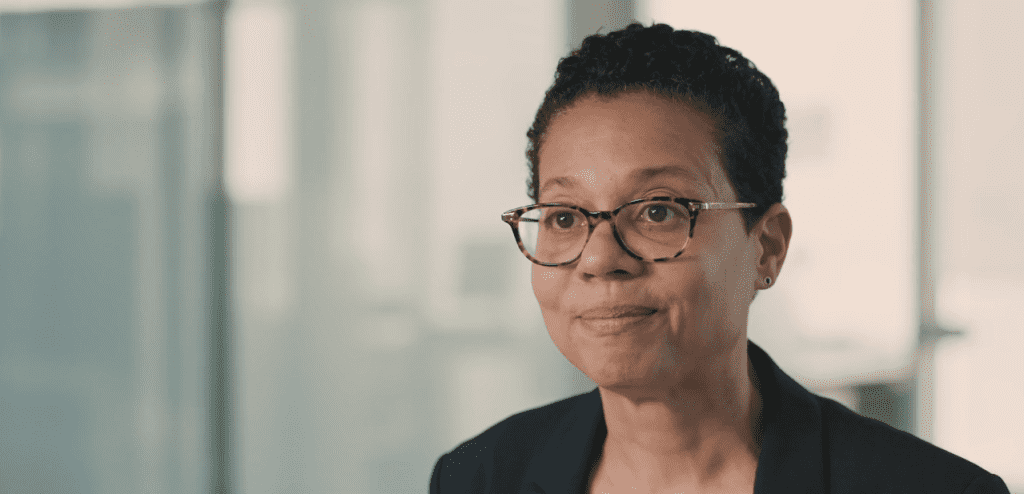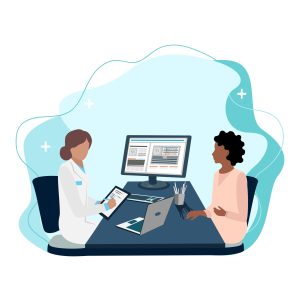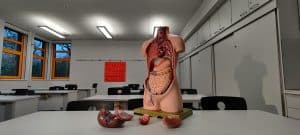
Working Life: Linda Armstrong, Global Head, Respiratory Development Unit at Novartis
pharmafile | August 27, 2019 | Feature | Business Services, Manufacturing and Production, Medical Communications, Research and Development, Sales and Marketing | Novartis, Working Life, feature, pharma
Linda Armstrong, Global Head, Respiratory Development Unit at Novartis.
You studied history and science at Harvard. How has that shaped your perspective and your outlook in your career?
I was very fortunate in that Harvard allows you to do the prerequisite courses for medical school in addition to focusing on other things, including the humanities. In high school I always wanted to be a physician, but history was my favourite class and the one that I did the best in! It was many years ago, but when I look back on it now I think there are two things that I learned in studying history and science that apply throughout my career; the first one is that, within the sciences, a lot of what we believe is objective science and truth at any one moment can be proven to be wrong a few years later, so I think that’s allowed me to have a certain amount of what I hope is healthy scepticism, and the ability to step back and think critically about what’s considered to be dogma.
During the time I was at Harvard, one of my professors had just written a book about the Tuskegee syphilis study called Bad Blood. It dramatically illustrated the importance of informed consent and the damage that can be done when people don’t think about the patients first, particularly when those patients may not have agency. That was a powerful lesson for me that is certainly very applicable in my day-to-day now.
You later trained as a doctor at Yale School of Medicine. What motivated you to change direction and move towards the pharmaceutical industry?
After medical school, I did my internal medicine training at Columbia University in New York City, at the height of the AIDS epidemic just prior to the availability of anti-viral medications. Being in medicine at a time where there were such amazing treatment breakthroughs really highlighted the importance of the pharmaceutical industry and clinical research. After training in intern medicine I did a fellowship in pulmonary medicine at New York University and had the opportunity to conduct clinical trials and found it very interesting. Joining the industry gave me the opportunity to really do more clinical research, and from a personal perspective it gave me a little more control over my schedule at a time when I had a young family.
Would you ever consider going back to practicing as a doctor or being an academic?
I don’t know. I’ve been in the industry now for 20 years. I feel like I am still a secondary consultant for my family and friends! There are things that I miss, but I enjoy the industry; I certainly would think about different ways that I could work within the pharmaceutical industry, but I’m not sure that I would go back to practice or academia – although anything’s possible.
From there, you’ve worked at some of the industry’s big names. Can you walk us through how you came to be where you are now?
After academia I started at Schering-Plough; it was a medium-sized company with a focus on how to do clinical research quite quickly. I was able to work on some programmes in allergy as well as in asthma. I worked there for about five years and really enjoyed it. Then I went to work for Pfizer, a much bigger US company that was only 12 minutes away from where I live in New York City, so that was a big advantage. There, I worked in pharmacovigilance as well as in medical affairs. Pfizer was a great experience, in part because they have wonderful processes, so to be able to do pharmacovigilance at a company like that has really put me in good stead throughout my career. Working in medical affairs, I had the chance to work on the US launch of a respiratory product – that was also a fantastic opportunity. About 11 years ago, I joined Novartis, where I’ve worked in four different line functions in a number of different therapeutic areas; even though I’ve been here 11 years, it feels like every couple years I am doing something new.
You’ve worked in the United States and Switzerland. What cultural differences did you find, and how did you enjoy the contrast in working environment?
I had a global role even when I was based in East Hanover, New Jersey at Novartis, so switching from that global role to a global role in Switzerland…I didn’t expect that there would be much change because I knew the people and knew the company. What did strike me was how much easier it is to work from the company centre: you just get information faster, you can resolve problems faster, and that ability to have more one-to-one contact with people you’re working with was a great opportunity. Living in Switzerland was one of the best experiences for my family; moving from a city like New York, with eight million people, to a city like Basel, with about 200,000, was a big shock at the beginning, but it’s such a lovely city in a wonderful country. We really appreciated the slower pace and the respect for the environment and for the natural beauty of the country. It was really a wonderful experience for us and we still talk about it very fondly.
You’ve been at Novartis for 11 years now. What’s kept you there all of this time? What do you value about your current role or the company culture?
Novartis has given me the opportunity to work in a number of different areas and to try new things. I’ve worked in four different line functions: clinical development, medical safety, medical affairs, oncology, and respiratory, and in some other different therapeutic areas. It’s stretched me and has always provided great opportunities for learning, which I love. It never seems like you’re in the same place for long, and that’s been a real benefit. The opportunity to work in a truly global company is wonderful, having colleagues in Switzerland, but also in Hyderabad, Dublin and Shanghai, which is where the development hubs are located. I think opportunities like that are not easy to come by in pharma and it’s been extremely valuable.
What do you think your biggest achievements have been throughout your career?
I like to think that my greatest achievements are coming! I think I have been very fortunate to work in and sometimes lead teams that have accomplished some wonderful things, and have moved forward medicines and therapies that have a big, positive impact on patients. That has been in respiratory diseases like COPD and asthma, but also with the CAR therapies in paediatric leukaemia. Currently, I’m working on programmes in respiratory that have the potential to have great impact on patients with asthma in the near-term, as well as some other respiratory diseases where there’s significant unmet need in earlier programmes. We have great people working on them, and we will learn a lot as we move forward.
What advice would you give to someone who would like to follow a similar path to yours?
I think my biggest piece of advice would be to not be afraid of trying something very different. I have been very surprised at what skills are transferable from either previous roles or previous experiences. From a clinical trial perspective, I would tell them not to be discouraged if trials or programmes don’t work out as intended; if a study has been designed well, and data quality is good, then there’s always a lesson, and that lesson will move you forward.
Related Content

Rare disease clinical trials: the urgent need for patients to be heard
Ahead of Clinical Trials Day, Soraya Bekkali, from Alexion, AstraZeneca Rare Disease, highlights the urgent …

Sustainability in pharma
Betsy Goodfellow from Pharmafocus considers the need for sustainable practices in the pharma industry and assesses various …

PeptiDream and Novartis extend peptide discovery collaboration
PeptiDream has announced the expansion of its peptide discovery collaboration with Novartis Pharma AG.







